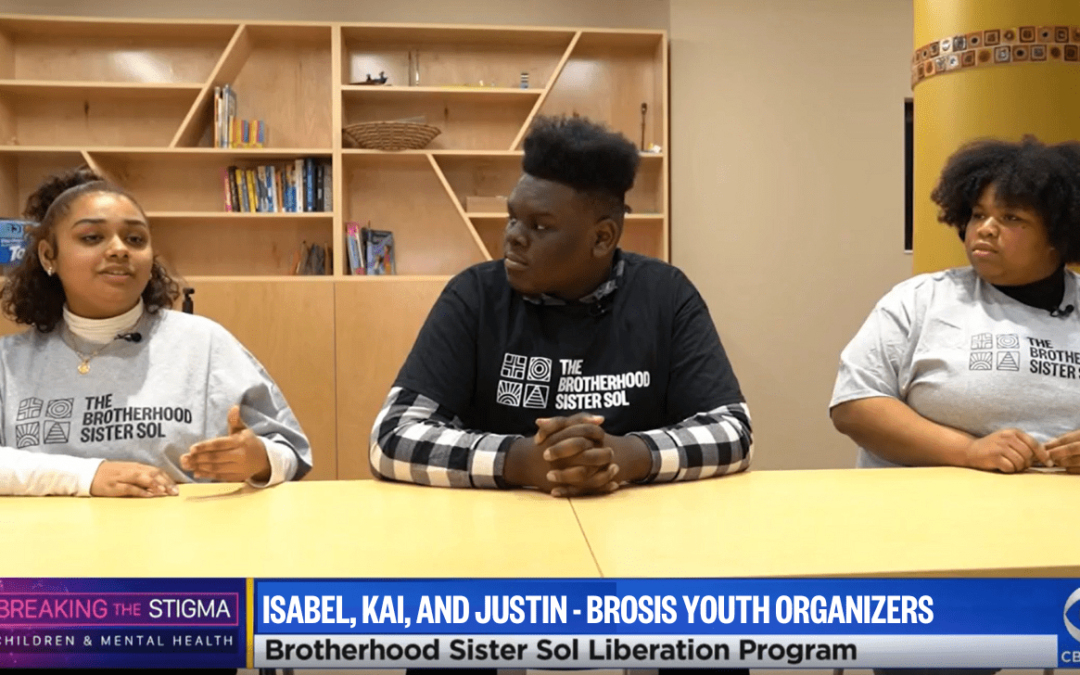Check out this CBS New York feature on the youth of BroSis who are organizing to increase mental health support and access for all young people.
Watch below or on CBS NY’s website →
At The Brotherhood Sister Sol nonprofit, young leaders learn to develop their voices. The BroSis Liberation Program guides interested teens in policymaking and activism, sparking ideas for societal shifts in Isabel Fernandez.
“It’s wanting to make a change. It’s not wanting to destroy anything. We just want to fix what was built wrong,” Fernandez said.
Joined by Justin Butler, Dakarai Lindsay and a few friends from other youth groups, the Save Our Schools campaign took them to City Hall and the state capital to advocate for more mental health care funding last year.
Their demands were denied.
“It’s very frustrating because it’s like we know the problem. Why can’t we address it?” Fernandez said.
“If you really want to break it down and say, how are we going to help these schools? How are we going to help support these students? And then the teacher and parents are saying, like, ‘Oh, we need to enforce more police officers. We need to see what they’re doing every five seconds.’ No. We need to come to the person and be like, ‘What’s wrong?’ Sit down with them. Have a talk. They’re still human at the end of the day. These people are just going through a lot,” Lindsay said.
Federal data shows more than 70% of public schools saw an increase in students seeking mental health support during the pandemic, and yet, 88% of public schools admitted they were not properly staffed to address the needs.
“When you hear those kind of numbers, that’s eye opening. We saw that on the ground. We saw that COVID had really broken something, and so we knew that we needed to do something,” said Khary Lazarre-White, co-founder of Brotherhood Sister Sol.
Manhattan is among few areas that exceed the need for school counselors, but students say those staff members aren’t distributed evenly on the upper end of the island.
“What we have now is guidance counselors and college counselors and some schools don’t have that, and then sometimes a guidance counselor is considered a social worker,” Lindsay said.
Lindsay serves as a student mediator to help counsel her peers and fill the gap.
“The stress load, the workload, it’s a lot, so having that person to be there and say, ‘I got you. I’m here to support you.’ That goes a long way,” Butler said.


